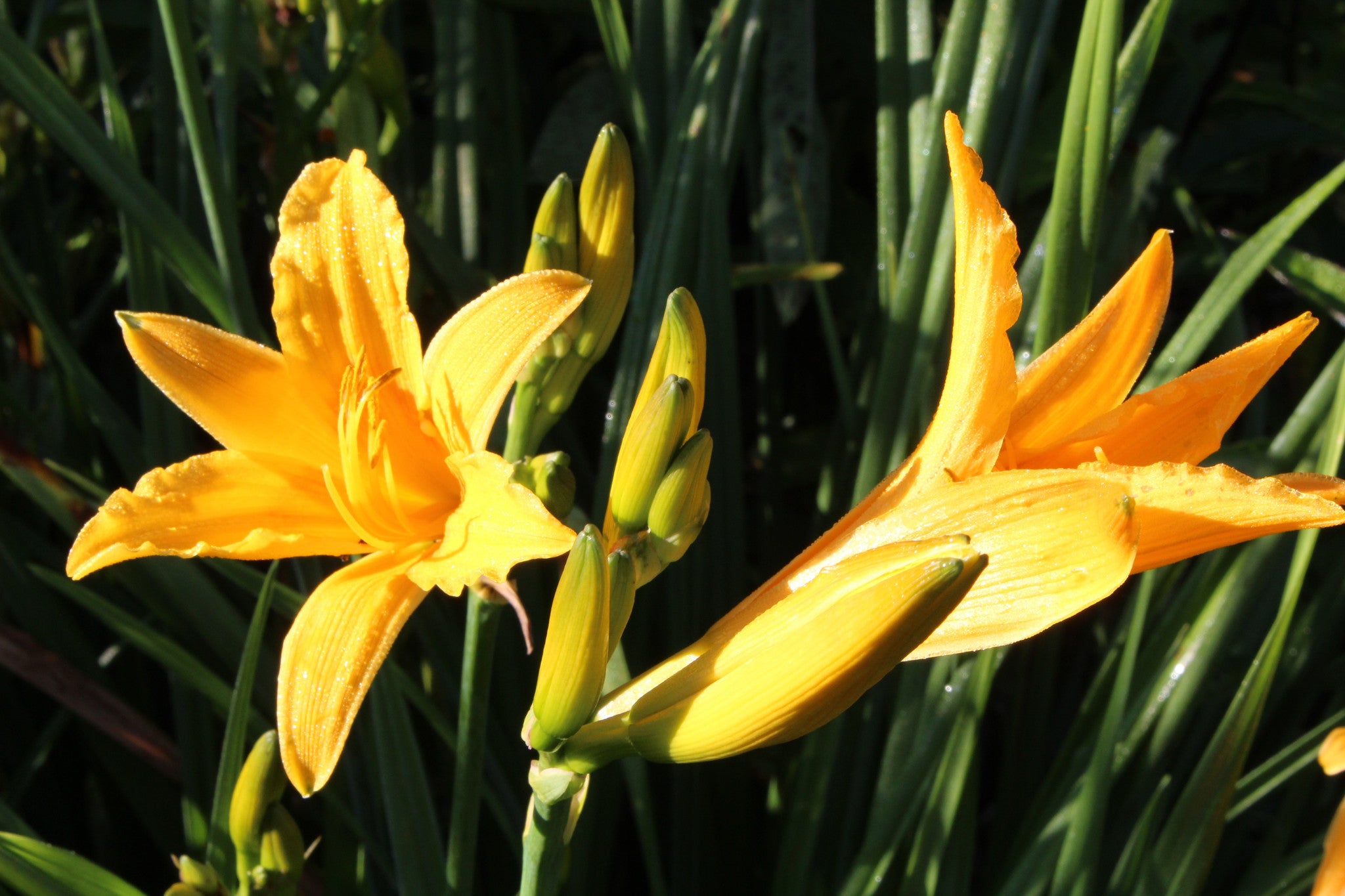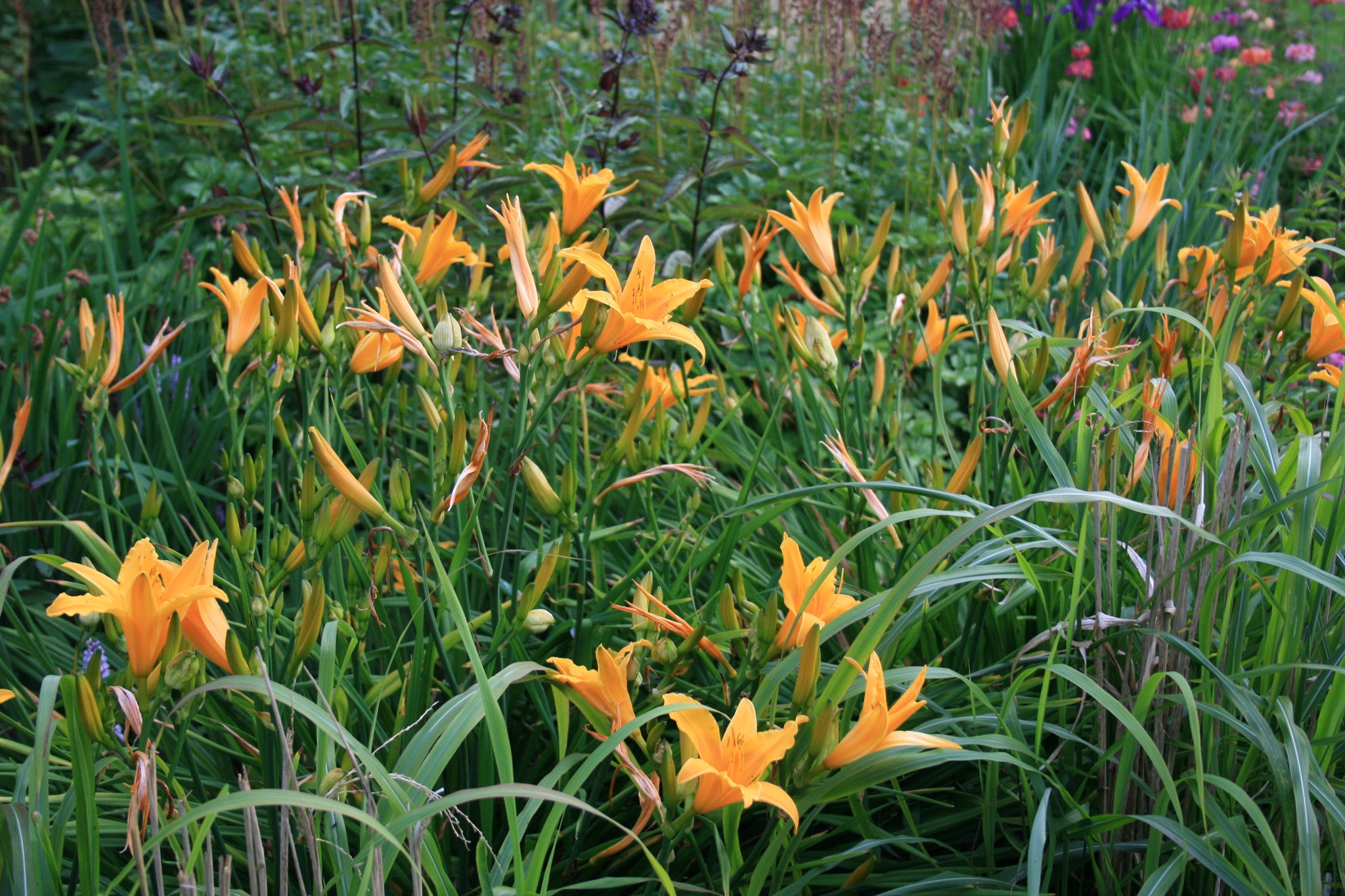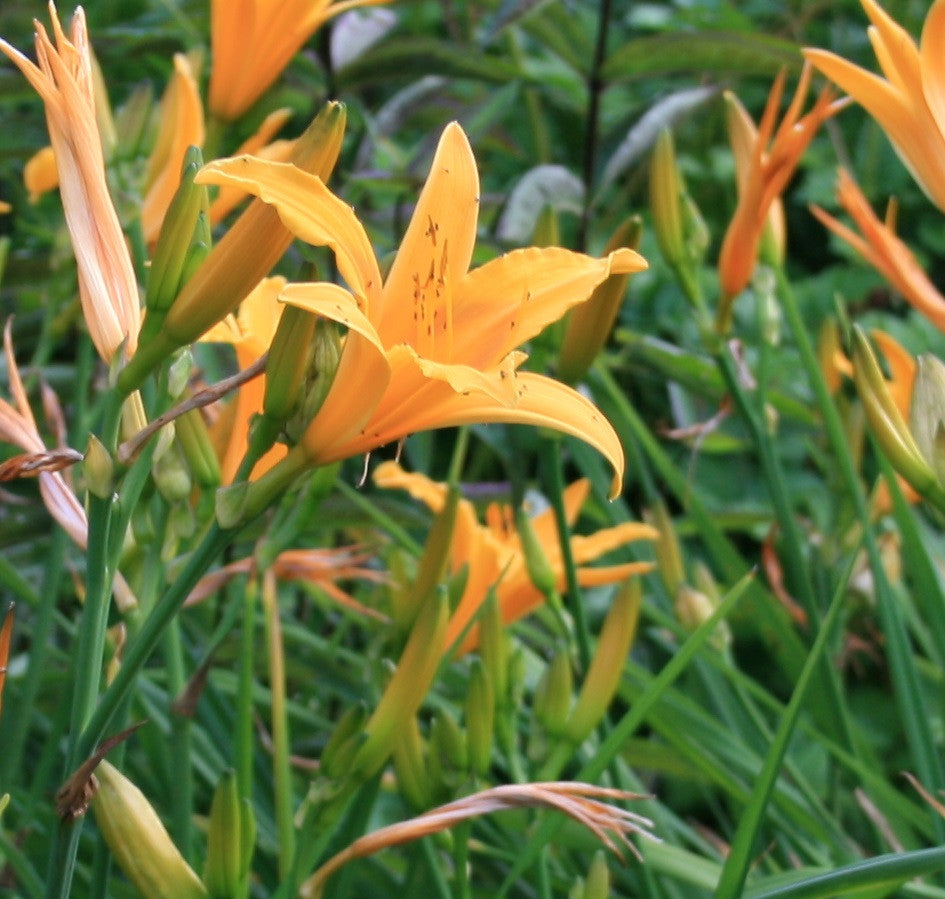Hemerocallis 'Contessa'
Approx. 0.5 litre pot
About this cultivar:
Hemerocallis 'Contessa' are compact plants that produce large flowers of bright orange over a long period.Easy clump forming plants. Introduced in 1955 and still going strong.
- Position: Full sun, partial shade
- Soil: Almost any soil, grows well in Ballyrobert
- Flowers: June, July, August
- Other features: Grows well in Ballyrobert
- Hardiness: Fully hardy - grows well in Ballyrobert!
- Habit: Clump forming
- Foliage: Deciduous
- Height: 30 - 60 cm (1 - 2 ft)
- Spread: 30 - 60 cm (1 - 2 ft)
- Time to full growth: 2 to 5 years
- Plant type: Herbaceous Perennial
- Colour: Green, yellow, orange
- Goes well with: Grasses
About this genus:
Hemerocallis (hem-er-o-kal-is) from the Greek hemeros (day) and kallos (beauty) is commonly known as the Daylily. Hemerocallis is now placed in family Xanthorrhoeaceae but formerly was part of Liliaceae (which includes true lilies) so technically it is not really a lily at all! Who cares? We still love them!
Hemerocallis are perennial plants, whose name alludes to the flowers which typically last no more than 24 hours. The flowers of most species open in early morning and wither during the following night, possibly replaced by another one on the same flower stalk the next day. Believe it or not, some species are night-blooming. This genus is popular worldwide because of the showy flowers and hardiness of many kinds. There are over 60,000 registered cultivars- isn't that amazing!?!?
Hemerocallis is native to Eurasia, including China, Korea, and Japan. The flowers of some species are edible and are used in Chinese cuisine, but I must say I have never ate them (even though I lived in China for a year). Although perhaps I will soon because the cultivars we have in our garden at Ballyrobert flower like mad. Basically, they grow almost anywhere that isn't full shade. From our photos you may see we even grow a few under trees.
Hemerocallis plants pair well with just about everything, but try them with grasses (Miscanthus?) for wonderful colour and texture combinations.






